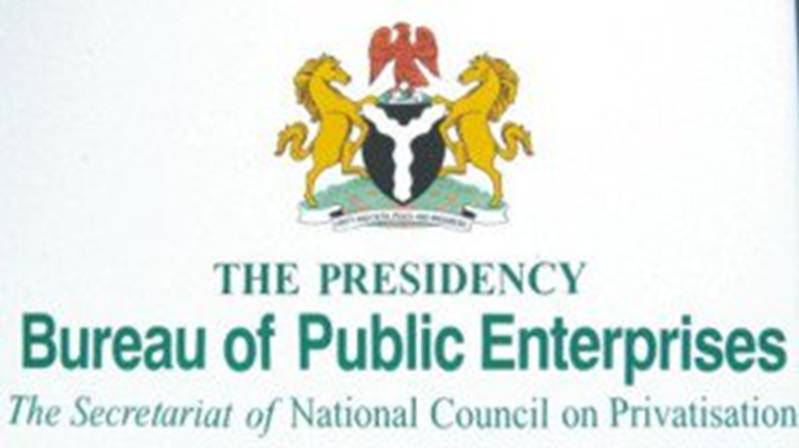Business
Use of tax revenue will enhance tax morale, compliance — FIRS
By Matthew Denis, Abuja
The Executive Chairman of Federal Inland Revenue Service, Muhammad Nami has disclosed that when the Governments deploy tax revenues for the common good of the citizens, there is a concomitant increase in tax compliance by citizens who see the direct benefit of the taxes they pay.
He made the disclosure while making his remarks at the launch of the Public Finance Database by the Nigeria Governors’ Forum at the Wells Carlton Hotel, in Abuja.
Mr. Nami argued that the low compliance tax rate in most developing countries was as a result of the failure of the social contract between the taxpayers and the government, noting that those in political leadership in the country had a duty to promote a tax-paying culture by relating projects and infrastructural developments executed by them to taxes paid by taxpayers.
“Taxpayers need to see what has been done with their money to be encouraged to continue to pay their obligations under the Social Contract they have with the government.
“I am delighted that one of the sessions focuses on the tax-for-service programmes as they impact tax revenues. This issue is dear to us as tax administrators as there is a nexus between the effective utilization of tax revenue and tax compliance,” he stated.
“The low level of tax compliance in developing countries can be attributed to the failure of the social contract between the taxpayers and the government. It is expected that if the citizens are committed to paying taxes, the government should be committed to using the taxes for the common good of all citizens.”
The FIRS boss further argued that projects funded by taxpayers’ moneys should be reported as such and not personalized so that citizens would begin to relate these projects as the proceeds of their taxes.
“Those in political leadership should promote the tax-paying culture by relating projects and infrastructural developments executed by them to tax.
“The government at all levels are doing a lot with taxpayers’ money but citizens do not easily appreciate these facts because of the way and manner the projects are reported.
“There is the need to de-emphasize and de-personalize projects so that the citizens will begin to relate all the ongoing laudable projects in the states to tax revenue. This singular act to a great extent will increase the tax morale and enhance compliance.”
Mr. Muhammad Nami, an advocate for a harmonized tax system as a cure for tax revenue leakages used the platform to call for the country to make a bold paradigm shift by harmonizing the country’s tax system to optimize tax revenue collection.
“Recently, there has been a clamour for a holistic review of our tax system. Its proponents, including myself argue that if Nigeria must achieve its tax revenue potentials as the fulcrum of economic development, a harmonisation of our tax system must be undertaken.
“Tax harmonisation for enhanced revenue generation, which was the theme of the 2nd National Tax Dialogue was carefully chosen to reiterate the need for us as a nation to rethink the current tax system being operated.
“There was a consensus at the dialogue that Nigeria needs a transition to a unified tax administration as practised globally by most of the efficient and effective tax jurisdictions that have achieved optimum tax revenue collection.
“Certainly, there is no gainsaying that if Nigeria must be less dependent on external borrowing and buffer from the volatility and dwindling oil revenue, there should be a paradigm shift. Beyond politics and sentiment, the country should be willing to make those bold and hard but beneficial tax reforms and there is no better time than now, if we must avert the looming debt crisis. The gains from a harmonised tax system far outweigh the fears expressed in some quarters, if dispassionately analysed.”
Business
Bitcoin price dips below $64,000 amid cryptocurrency slump


The price of Bitcoin, a cryptocurrency platform, fell below $64,000 on Thursday morning, with over $209 million in crypto-bullish positions wiped off as the market slumped overnight.
According to Decrypt, data from Coingecko disclosed that Bitcoin is selling at $63,700, down by a whopping 4 per cent in a single day.
Bitcoin is not alone in its slump; the broader crypto market also slumped, with the combined market capitalisation of all cryptocurrencies dropping by 4.7 per cent overnight.
Ethereum, the second-largest cryptocurrency by market capitalisation, also slumped like Bitcoin, down by 5.3 per cent over the past 24 hours, with its price hovering around $3,090.
Among the top 10 cryptocurrencies, Toncoin (TON) has seen the biggest dip, down 10.1 per cent over the past 24 hours to trade at $5.21.
The market dip saw over $209 million worth of crypto-long positions liquidated, according to CoinGlass data. Similarly, about 52 million in Bitcoin Long Positions were also liquidated.
The current dip comes as inflows into Blackrock’s spot bitcoin ETF dried up, ending a 71-day streak of consistent inflows, making it break into the top ten for the longest ETF daily inflow streaks since 2004.
Across the board, according to CoinGlass data, Bitcoin spot ETF outflows hit $120.6 million after three consecutive days of inflows.
This follows Hong Kong spot Bitcoin and Ethereum ETFs getting officially approved yesterday, with a trading date set for April 30.
Experts believe that as much as $25 billion could be brought into the crypto market should exchange-traded funds be opened to investors in mainland China.
The much-anticipated Bitcoin Halving event occurred over the weekend. This event has always been bullish over the long term but it comes with some short-term losses.
Since Bitcoin’s high of $65,230 on the day of the halving, the leading cryptocurrency has dropped 2 per cent as it dipped below $64,000.
Business
Nigerians to pay more as Multichoice Nigeria hikes Dstv, Gotv subscription fees by 25%


Multichoice Nigeria, a prominent Pay-TV operator, has once again announced a price increase for its DStv and GOtv packages, this time by at least 25 percent.
This marks the third increment since last year, following the initial adjustment implemented on May 1, 2023.
Multichoice stated that the latest increase will take effect from Wednesday, May 1, 2024. While last year’s increment ranged between 19 percent to 20 percent depending on the bouquet, the company is now announcing a 25 percent to 26 percent increase across its packages.
The new subscription fees were communicated to customers via an email titled “Price Adjustment on DStv and GOtv Packages” on Wednesday, April 24, 2024. Below is an excerpt from the email message that subscribers received.
On Wednesday, 1 May 2024 we will adjust our prices across all our packages on OStv and GOtv. We understand the impact this change may have on you – our valued customer, but the rise in the cost of business operations has led us to make this difficult decision.
It remains our mission to provide the best entertainment and viewing experience to you and are committed to continue to deliver high-quality content and unparalleled service.
“So, from Wednesday, 1 May 2024, the price adjustment will take effect as follows.”
According to the notice sent to its subscribers, customers on the DStv Premium package will see their monthly subscription fee increase to N37,000 starting from May 1, marking a 25.4 percent rise from the current N29,500.
Similarly, the price of the Compact+ bouquet has been raised to N25,000 from N19,800 per month, reflecting a 26.2 percent increment.
DStv has also announced that subscribers on its Compact bouquet will now pay N15,700, up from the current N12,500, representing a 25.6 percent increase. Meanwhile, those on the Confam package will face a 25.6% hike as their monthly subscription rises to N9,300 from N7,400.
Under the new pricing structure, viewers on the DStv Yanga bouquet will be charged N5,100 for their monthly subscription, marking a 21.43 percent increase over the current N4,200 fee.
Multichoice has announced price increases across its GOtv packages. Customers on the Supa Plus package will now pay N15,700, marking a 25.6 percent rise from the current price of N12,500. Similarly, the Supa bouquet will see its price increase to N9,600 from the current N7,600.
For the GOtv Max subscription, the new price is N7,200, up from N5,700, while the Jolli package will now cost N4,850, compared to the current price of N3,950. Multichoice has also adjusted the price of its lowest GOtv package, Jinja, which will now be N3,300 monthly instead of the current N2,700.
Although Multichoice Nigeria is yet to issue any statement regarding the factors behind the recent price review, Nigeria’s inflation increased to 33.2 percent.
Business
BPE seeks collaboration with NLC on privatisation process


By Matthew Dennis
The Bureau of Public Enterprises (BPE), under the leadership of the Acting Director General, Mr. Ignatius Ayewoh, recently paid a courtesy visit to the President of the Nigeria Labour Congress (NLC), Comrade Joe Ajero, to seek collaboration with the Labour Union in the ongoing reform and privatisation program of the Federal Government.
This is contained in a statement signed by Head, Public Communications, Amina Tukur Othman, and made available to NewsDirect on Tuesday.
The statement stated that Mr. Ayewoh emphasised the importance of collaboration with the labour unions to ensure the welfare of workers during and after government agency reforms. He expressed gratitude to Mr. Ajero and the Union for their past support and urged them to continue partnering with the Bureau, particularly as members of the Technical Committee (TC) of the National Council on Privatisation (NCP).
Highlighting BPE’s previous successes in various sectors of the Nigerian economy such as telecoms, banking, Eleme petrochemical, and port terminal concessions, Mr. Ayewoh stated that the Bureau’s current strategy is focused on implementing Public Private Partnership (PPP) and concessioning in its transactions.
Furthermore, Mr. Ayewoh informed Mr. Ajero that BPE is working closely with the Accountant General’s Office to ensure the payment of all outstanding severance liabilities arising from the 2013 privatisation of the power sector, in accordance with agreements made with labour unions.
In response, Mr. Ajero thanked the Ag. DG for the visit and pledged the collaboration of the NLC with the Bureau in its reform activities.
It is worth noting that, in 2023 the BPE, along with other sister agencies, conducted a verification exercise for the payment of the agreed 16-month severance benefits to former staff of the defunct Power Holding Company of Nigeria (PHCN), including certified Next-of-Kin (NOK) of deceased ex-staff. The exercise took place in twelve designated centres over four phases across the country.
-
Finance3 months ago
Court orders Sen. Victor Umeh to repay N136m bank debt to AMCON
-



 Abuja Update2 months ago
Abuja Update2 months agoUNDP, FG partnership needed to achieve inclusion, equity- Minister
-
Abuja Update1 month ago
Banks drive stock market performance with N147bn gain
-



 Infotech3 weeks ago
Infotech3 weeks agoWorld Backup Day: NITDA urges Nigerians to ensure backup of data
-
capital market2 years ago
Rt.briscoe, FBNH, Others halts negative performance of stock market
-



 Health3 weeks ago
Health3 weeks agoImmunisation: FG, GAVI seek synergy with Sokoto Govt.
-
Infotech2 weeks ago
Forex for Beginners: Unveiling the currency exchange and how to trade it
-



 Health1 week ago
Health1 week agoCapacity training will reduce migration of health workers- NPHCDA












